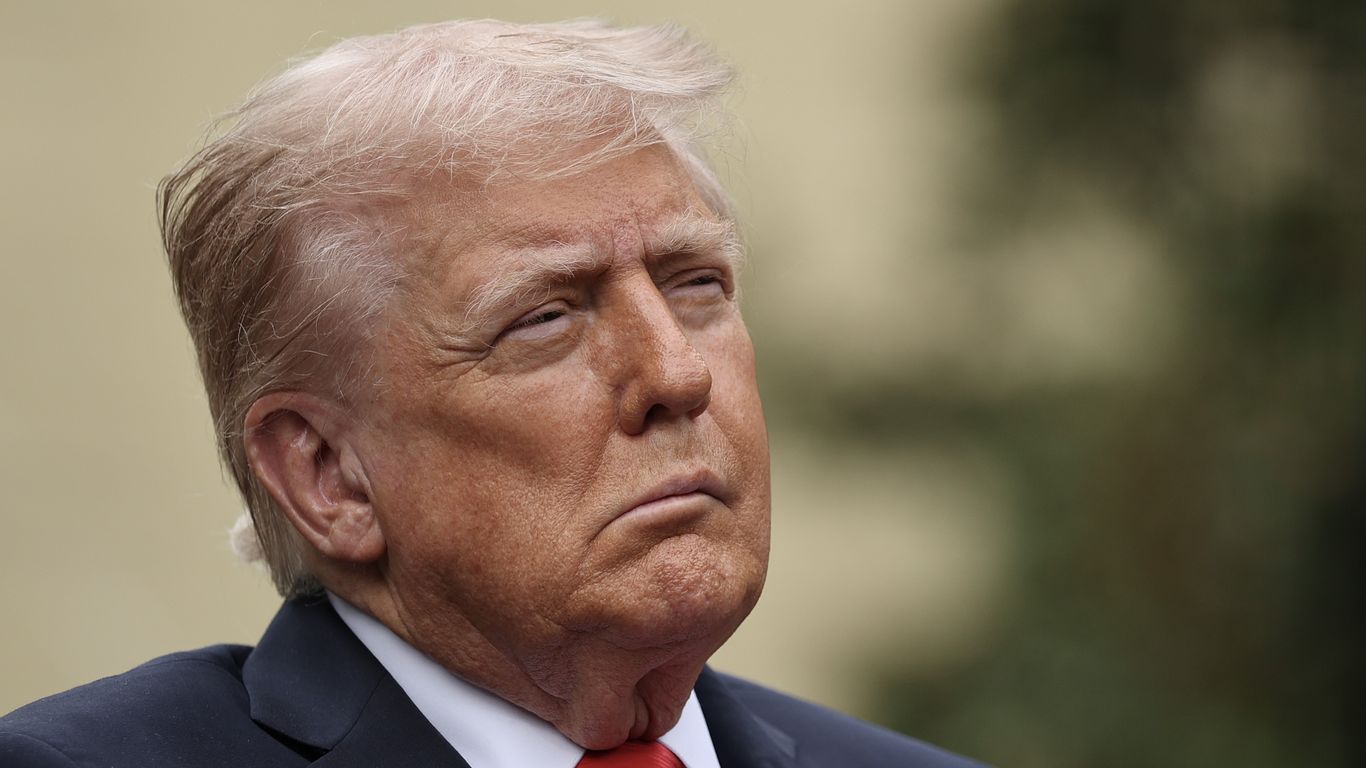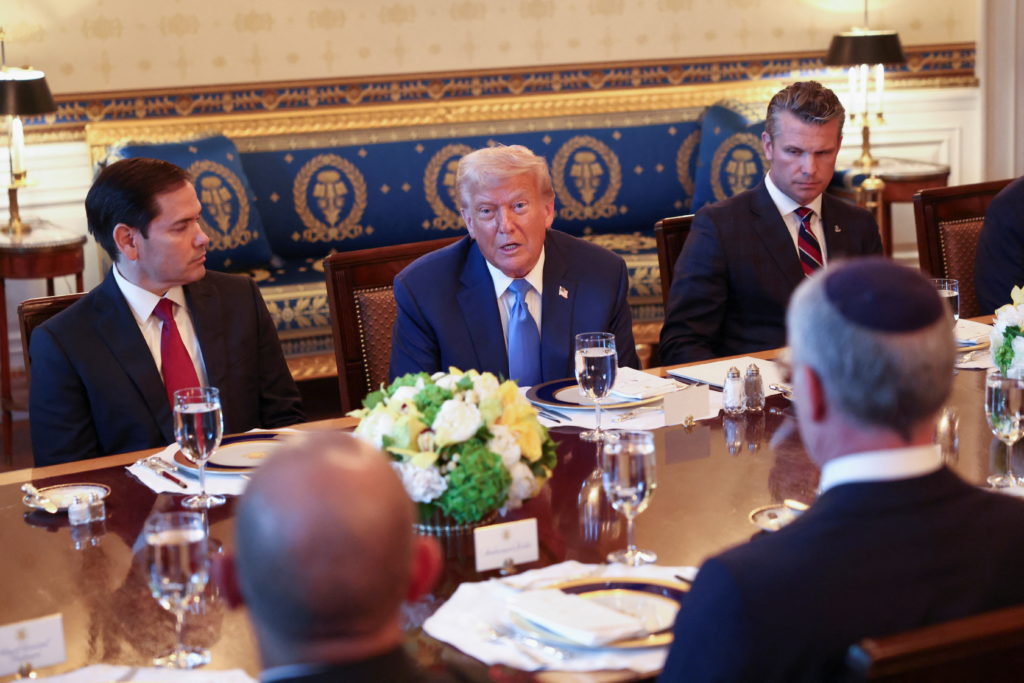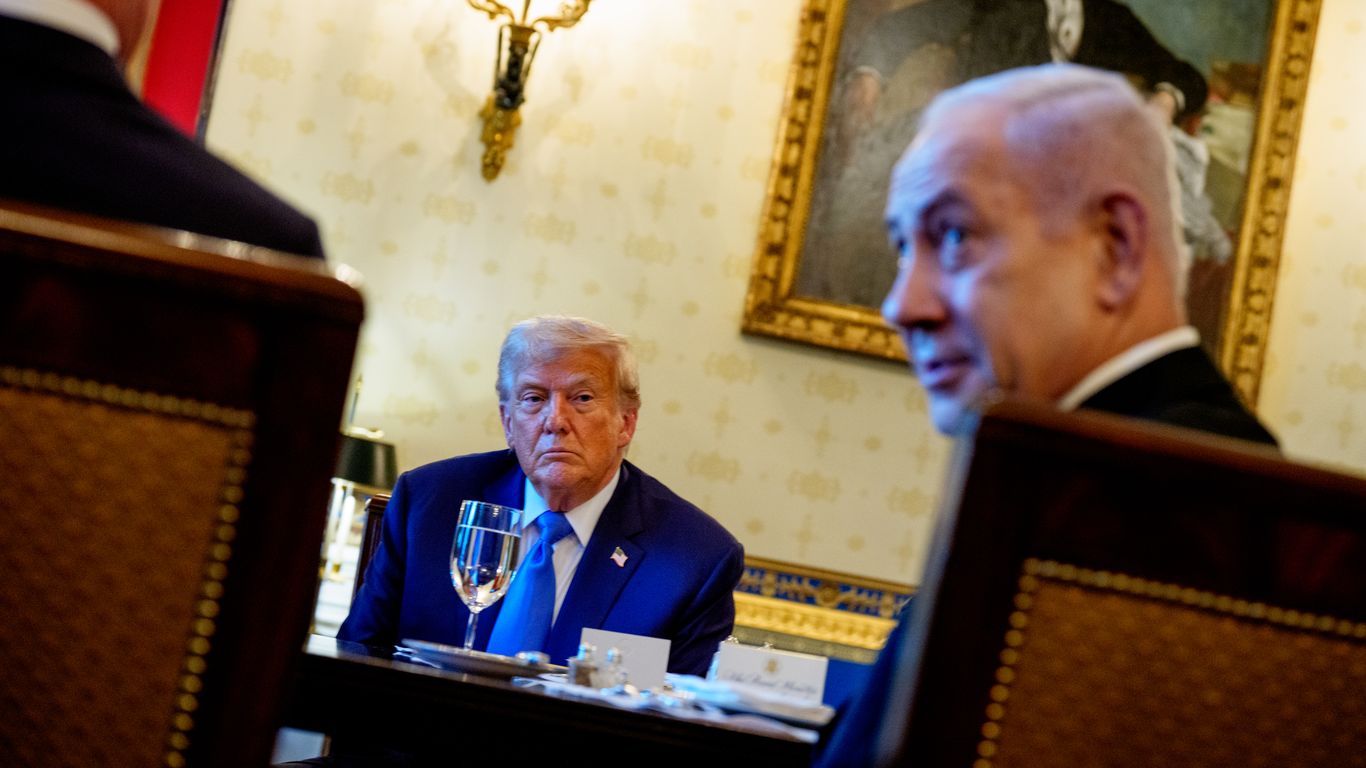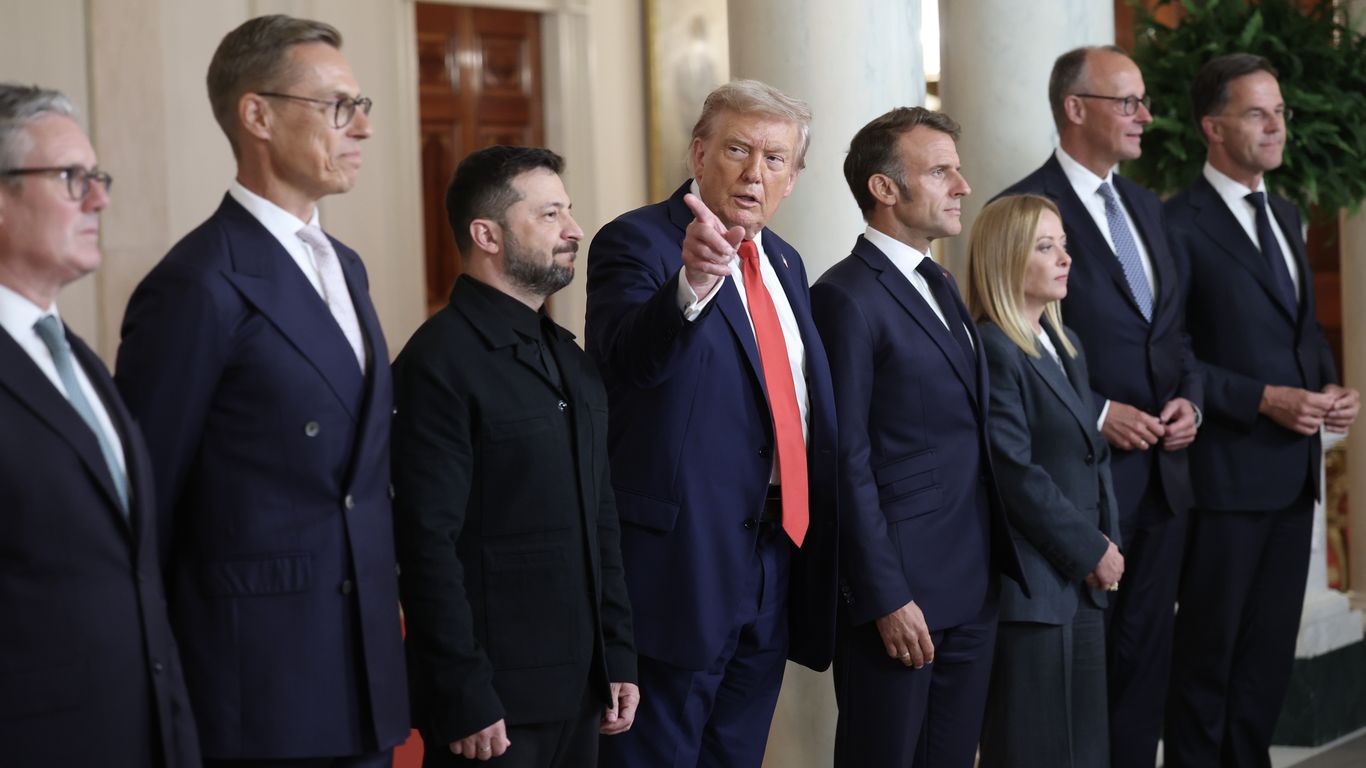Trump to Meet with Qatar Prime Minister After Israeli Strike

Introduction
President Trump is set to meet with Qatar's Prime Minister on Friday after an Israeli strike in Doha. This meeting is another way for Trump to show his support for Qatar and opposition to the Israeli strike, which has caused tension in the region. With this meeting, Trump is sending a message that the US stands with Qatar and will not tolerate aggression from any country.
Impact of the Israeli Strike
The Israeli strike in Doha has caused a major uproar in the Middle East. It has been condemned by many nations, including the US, for its damaging effects on the region. The strike has also further strained the already fragile relationship between Qatar and its neighboring countries. This has led to Trump's meeting with the Qatari Prime Minister as a show of solidarity and support for Qatar.
US-Qatar Relations
The US has been a key ally of Qatar for many years, with both countries having strong economic and military ties. The meeting between Trump and the Qatari Prime Minister is another way for the US to reaffirm their support and commitment to the country. It also sends a message to other nations, including Israel, that the US will not tolerate any actions that could destabilize the region.
About the People Mentioned
Donald Trump
Donald John Trump, born June 14, 1946, in Queens, New York, is an American businessman, media personality, and politician. He graduated from the University of Pennsylvania’s Wharton School in 1968 with a degree in economics. In 1971, he took over his family’s real estate business, renaming it the Trump Organization, through which he expanded into building and managing skyscrapers, hotels, casinos, and golf courses. Trump gained widespread fame as the host of the reality TV show *The Apprentice* from 2004 to 2015, which helped establish his public persona as a successful entrepreneur. Trump entered politics as a Republican and was elected the 45th president of the United States, serving from 2017 to 2021. His presidency was marked by significant policy actions including tax cuts, deregulation, the appointment of three Supreme Court justices, renegotiation of trade agreements (notably replacing NAFTA with the USMCA), and a focus on immigration control including border wall expansion. He withdrew the U.S. from international agreements such as the Paris Climate Accord and the Iran nuclear deal, and engaged in a trade war with China. His administration’s response to the COVID-19 pandemic was criticized for downplaying the virus’s severity. Trump was impeached twice by the House of Representatives—first in 2019 for abuse of power and obstruction, and again in 2021 for incitement of insurrection—but was acquitted by the Senate both times. After losing the 2020 election to Joe Biden, Trump challenged the results, culminating in the January 6, 2021, Capitol riot. He remains a central figure in American politics, having won the 2024 presidential election and returned as the 47th president in 2025, continuing to promote policies aimed at economic growth, border security, and military strength[1][2][3][4].
About the Organizations Mentioned
Qatar
Qatar is not an organization but a country located in the Middle East, known for its significant contributions to global business, technology, and social development. Here is a comprehensive summary of Qatar's key aspects: ## Overview Qatar, officially the State of Qatar, is a constitutional emirate with a hereditary monarchy. It is ruled by the Āl Thānī family, with the current emir being Sheikh Tamim bin Hamad Al Thani. The country's government structure includes a Council of Ministers and an advisory Shura Council, although the latter's electoral component was abolished in 2024[4]. ## History Qatar's history is marked by its transformation from a small tribal state to a major economic power. After World War II, oil revenues significantly increased, leading to rapid modernization and political stability within the ruling family[4]. In 2003, a new constitution was approved, which initially provided for the election of the Shura Council, but these elections were repeatedly delayed until 2021 and later abolished[4]. ## Key Achievements - **Economic Diversification**: Qatar has successfully diversified its economy beyond oil and gas, with non-oil sectors contributing over 60% of GDP in 2024[8]. Tourism, logistics, and financial services are key drivers of this diversification. - **Global Events**: Qatar hosted the FIFA 2022 World Cup, which was a significant achievement in terms of infrastructure development and international visibility[8]. - **Investment and Development**: The government has allocated substantial funds for major projects, including education and healthcare, with a budget of $5.3 billion for education and $6 billion for health in 2025[2]. ## Current Status Qatar continues to invest in strategic sectors like education, healthcare, and environmental sustainability. The country is hosting the Second World Summit for Social Development in 2025, focusing on inclusive social development[6]. Its GDP per capita is among the highest
Israeli
The query "Israeli" does not correspond to a specific organization but rather refers broadly to entities related to Israel. Based on the search results, there is no single organization named "Israeli" to profile. Instead, the available information focuses on the nature of business entities and company formation in Israel, rather than a particular company or organization called "Israeli." To provide a relevant and comprehensive summary aligned with the query’s likely intent—information on Israeli business entities and companies—here is an overview: In Israel, the legal framework for business organizations is primarily governed by the **Israeli Companies Law of 1999** and related regulations. The most common and prominent business entity is the **Private Company Limited by Shares**, which offers limited liability to its shareholders. Companies may be established by one or more individuals or legal entities, regardless of nationality or residency. Registration is conducted through the **Registrar of Companies** in the Ministry of Justice, a process that typically takes about two weeks and costs up to around US$2,000, including legal fees[1][2][3][6]. Israeli companies can be either **private** or **public**. Private companies have restrictions on share transferability, limited shareholders (up to 50), and cannot offer shares to the public. Public companies have at least seven shareholders and may issue shares or debentures on the stock exchange, subject to regulatory compliance such as publishing annual audited financial reports[2]. Key steps in forming an Israeli company include selecting a unique, non-misleading company name, drafting detailed **Articles of Incorporation** (covering company goals, capital structure, liability limits, and governance), and filing declarations by directors and shareholders authenticated by attorneys[4][5]. Israel’s business environment supports various legal entities including partnerships and nonprofit organizations, with tailored tax and reporting requirements. Israeli companies must submit annual audited financial statements, ensuring transparency and accountability. Israel’s robust legal and regulatory framework makes it an attractive location for startups and established businesses
US
The query seems to be about providing a summary of the organization "US," which could be interpreted as the United States government or a specific entity within it. However, without a clear reference to an "organization" named "US," I will provide a comprehensive overview of the United States government, focusing on its structure, history, achievements, current status, and notable aspects relevant to business and technology. ## Overview of the United States Government The United States government is a federal republic with a system divided into three branches: the legislative, executive, and judicial. This structure is designed to provide checks and balances on each branch. ## History The U.S. government was established in 1789 under the Constitution, which outlines the framework of the federal system. Over time, the government has evolved through numerous amendments and reforms, shaping policies and laws that impact various sectors, including business and technology. ## Key Achievements - **Economic Growth**: The U.S. has been a global leader in economic growth, innovation, and technological advancements, fostering a strong business environment. - **Technological Advancements**: The government has supported significant technological developments, such as the internet and space exploration, through funding and regulatory frameworks. - **Regulatory Frameworks**: Agencies like the Federal Trade Commission (FTC) and the Federal Communications Commission (FCC) play crucial roles in regulating industries and ensuring consumer protection. ## Current Status Currently, the U.S. government is engaged in various initiatives to address contemporary challenges such as climate change, cybersecurity, and healthcare reform. The government also continues to evolve its organizational structure, with ongoing discussions about the role of the executive branch, as seen in initiatives like Project 2025. ## Notable Aspects - **Project 2025**: This initiative, backed by the Heritage Foundation, aims to restructure the federal government to align with conservative ideals, potentially impacting civil rights and executive branch powers. - **Standards and Regulations**: The U.S. Standards Strategy,



















